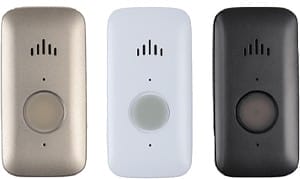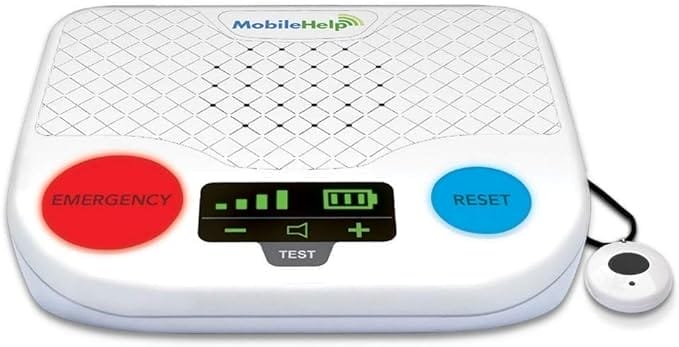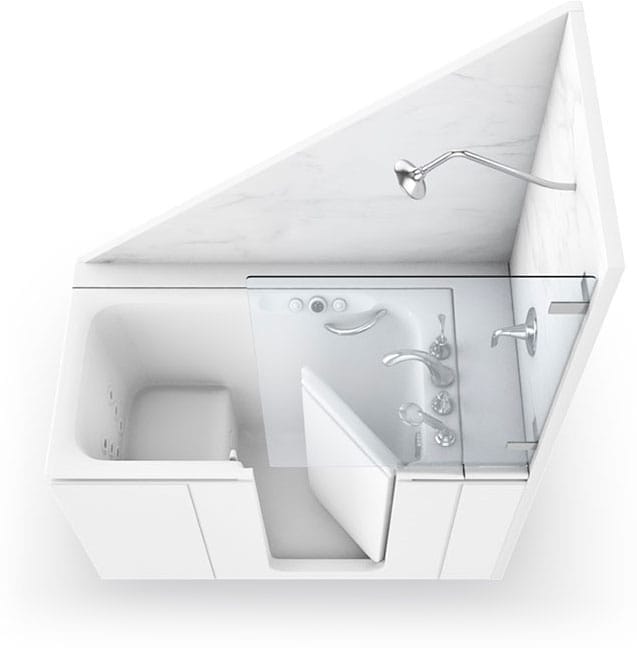
The search for assisted living can be a stressful journey when you’re navigating uncharted territory. It doesn’t have to be. If you are one of the 13.2 million people who receive Medicare, it’s helpful to know your options for using it to help pay for long-term care expenses. In this article, we’ll go over what Medicare is, what assisted living is, how Medicare may help cover assisted living-related expenses, and what the next steps might look like.
What is Medicare?
Medicare is a federal health insurance program designed for individuals 65 and older, paid through Social Security employee taxes. Certain individuals living with disabilities and other qualifying conditions may also be eligible to receive Medicare even if they are under 65. Medicare is different from Medicaid, though; the two insurance programs are commonly confused. Both can help cover health-related costs, but knowing the differences and understanding the details of Medicare vs. Medicaid is important.
In 2021, Medicare spending accounted for 10% of the federal budget, according to health policy research organization KFF. This amounted to $829 billion. Medicare covers a few different categories of costs, such as hospital, health, and prescription drug costs.
The four parts of Medicare (Parts A, B, C, and D) each cover a different category of these products and services. Long-term care spending, which would apply to assisted living, belongs to Medicare Parts A and B.
What is assisted living?
Assisted living is a form of residential care designed for older adults who need some but not total support with their day-to-day activities.
Assisted living generally includes a private or shared room, daily meals, a monthly calendar of activities, and private areas for study and leisure. Assisted living is a beneficial residential setting when living at home may no longer be safe or when an older person who needs some daily support wants to live closer to family without moving into the family home.
Does Medicare pay for assisted living?
Medicare doesn’t pay for rent at assisted living because this type of support is nonmedical or not “medically necessary” in nature. The main supports and services assisted living communities offer are nonmedical and might include housekeeping, laundry, socialization, and assistance with activities of daily living, like bathing, dressing, eating, transferring to and from bed, and ambulating. Medicare defines medically necessary services as those that “diagnose or treat an illness, injury, condition, disease, or its symptoms and that meet accepted standards of medicine,” so many typical assisted living services don’t qualify.
Medicare’s core offerings are:
- •Part A is hospital insurance: This is focused on inpatient care.
- •Part B is medical insurance: This is focused on outpatient care.
- •Optional Part C is Medigap/Medicare Advantage: This is supplemental, private coverage a person can choose to have instead of original Medicare.
- •Optional Part D: This is prescription drug coverage.
What services within assisted living might Medicare pay for?
Though Medicare doesn’t cover assisted living, it does cover durable medical equipment, which could include a wheelchair, oxygen equipment, and other supplies that you need to manage your health.
Medicare also covers preventative care services, encouraging members to manage their health proactively. Examples include flu shots, diabetes screenings, mammograms, and more.
Original Medicare covers home health care intermittently or long-term as long as you demonstrate a need for skilled or medical services and are “bedbound.” Examples include wound dressing and physical therapy.
Medicare-covered home health care services are at no cost to you; however, once you meet your Part B deductible, you are responsible for paying 20% of the Medicare-approved amount for that service or device. Here’s some information that breaks down approximate costs and what you may be responsible for.
If you work with a home health care company, they should give you notice ahead of time, explaining what Medicare will cover and what you’ll be responsible for.
Medicare Advantage (Medicare Part C)
Medicare Advantage plans, also known as Medicare Part C, don’t cover assisted living; however, they are more flexible with covering additional services as part of their benefit design. What’s more, for every person eligible for Medicare, there are roughly 39 options for them to choose from. Many of them come with a $0 monthly premium.
Certain assisted living and other senior living communities also have their own Medicare Advantage plans for residents. Here is one example from Erickson Senior Living.
Some plans within Medicare Advantage (MA) have a Part B giveback program. They may also cover in-home care services, adult day care, meal delivery, and other services related to assisted living. They develop provider networks for services that members need, and you can choose from a list of providers in your area based on your needs.
For services that MA plans don’t cover or offer, they may be able to refer you to a service provider or a company that can point you in the right direction.
Conclusion
Medicare does not pay for assisted living, but it does help with many of the costs of other health-related services and products older adults use. It can assist with coverage for certain inpatient hospital stays, hospice care, durable medical equipment (DME), and preventative care services.
If assisted living costs are an issue, there are other ways that you can pay for assisted living. Aside from private or self-pay, you can look into a reverse mortgage, long-term care insurance, or the Aid and Attendance benefit if you’re a Veteran. If you’re dually eligible for Medicaid and Medicare, you may be able to utilize Medicaid to help pay for some other costs.
Medicare Advantage may be an attractive alternative to help people with specific needs, including Veterans, people living with diabetes, and segments of the population covered under D-SNPs, or special needs plans. Private companies offer Medicare Advantage plans and have many rules about the services and products they cover and how much they will cover. If you’re considering a Medicare Advantage plan, be sure to do your research to understand the plan you’re purchasing.








